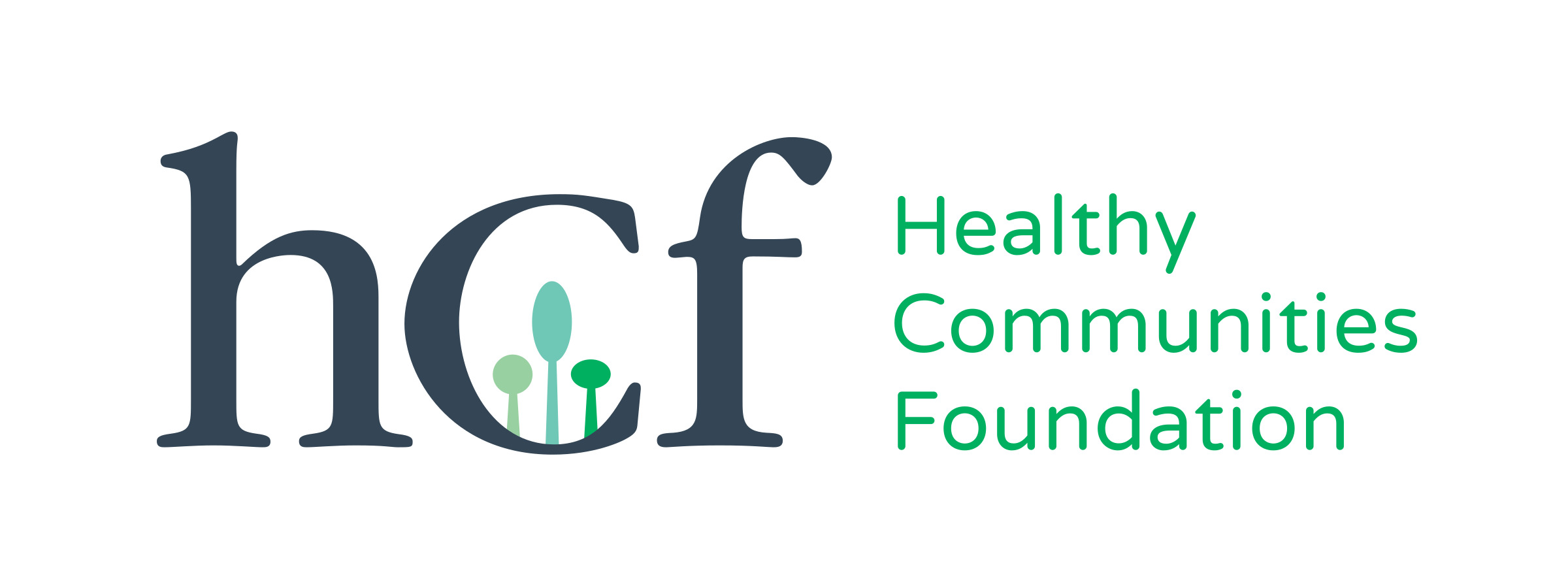Who We Are
We are committed to advancing health equity by centering community context in our grantmaking, strengthening the local health ecosystem by partnering with health equity leaders, and addressing immediate and emerging health needs, especially for those impacted by structural racism and systemic inequities.
Access to affordable, high-quality healthcare is crucial for a healthy life. However, social and systemic conditions, such as your race, ethnicity and where you live, often have a greater impact on overall health.
Since 2017, Healthy Communities Foundation has provided funding to local organizations that drive community-led solutions to promote health equity and expand health opportunities for all community members across its 27-zip code service area in Chicago and western Cook County suburbs.
Guided by our mission, vision, and values, and rooted in our legacy as a health conversion foundation, we are committed to advancing health equity to ensure everyone in our service region has access to the care, resources, and opportunities needed for healthy, fulfilling lives.
Mission
Our mission is to measurably improve the health and well-being of individuals, families, and communities in our service area by promoting health equity, quality and access.
Vision
We envision that individuals, families, and communities in our service region, regardless of where they are born, grow, live and work, have equal and ample access to the care they need to experience full, healthy, and happy lives.
Core Values
Our core values guide our decisions and actions as we work with community toward a healthier, more equitable future. They form the basis for how we engage with partners, approach our work, and stay true to our mission and vision of impact in our service region.
Investment in Local Health Solutions
We energize and invest in the spirit and potential of community-led health solutions.
Strengthening Community Well-Being
We strengthen efforts that create and expand resources and opportunities for communities to lead healthy, productive lives.
Big-Picture Thinking
With a health equity frame, we understand the importance of addressing immediate needs while investing in long-term systems change.
Informed Action
We support and value lived experience and evidence-based practices that inform our strategies and produce measurable results.
Trust-Based Partnerships
We aim to be responsive and accountable to partners and communities, especially those most impacted by health inequities. We cultivate relationships at the speed of trust.
Collective Learning
We prioritize building a culture of learning and transparency and convene in and with community to share insights with each other.
Ethical and Equitable Stewardship
To advance health equity, we must achieve racial equity.
All community members in our service region deserve access to resources and opportunities that enhance their health and well-being. Yet, decades of structural racism and systemic inequities have disproportionately harmed BILPOC (Black, Indigenous, Latinx, and other People of Color) communities, leading to worse health outcomes, shorter life expectancy, and limited access to care.
We are committed to achieving health equity by addressing the root causes of these inequities. This drives our mission to support organizations and initiatives focused on local health needs and systemic solutions that improve the quality of life for those most affected by health inequities in our region.
As a community-informed foundation, we understand the value that lived experience and proximity to issues bring to our work.
We intentionally recruit staff and board members who live in, have worked in, or have another type of connection with our service region. This philosophy is critical to ensuring our work is strategic and engages community to participate and change systems that impact their health.




